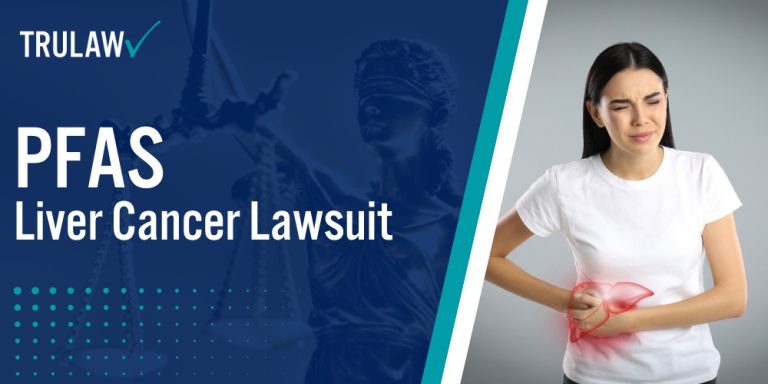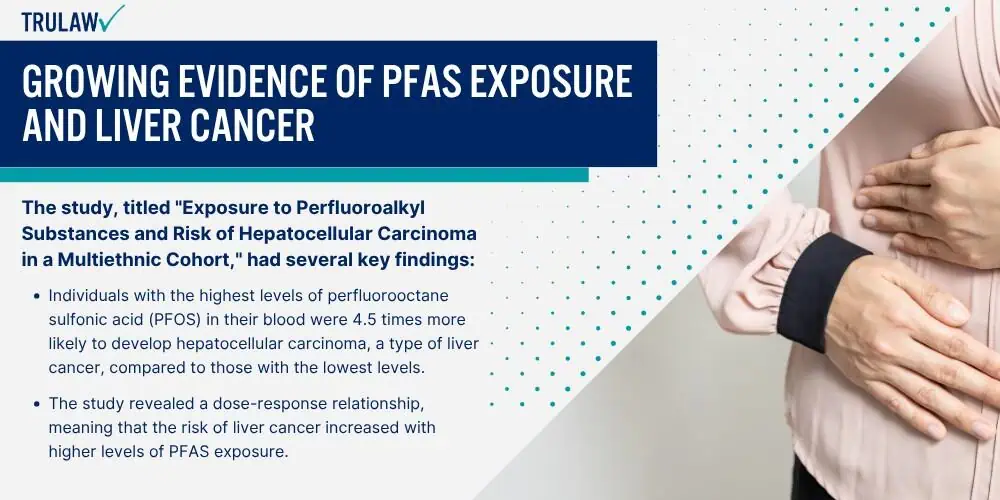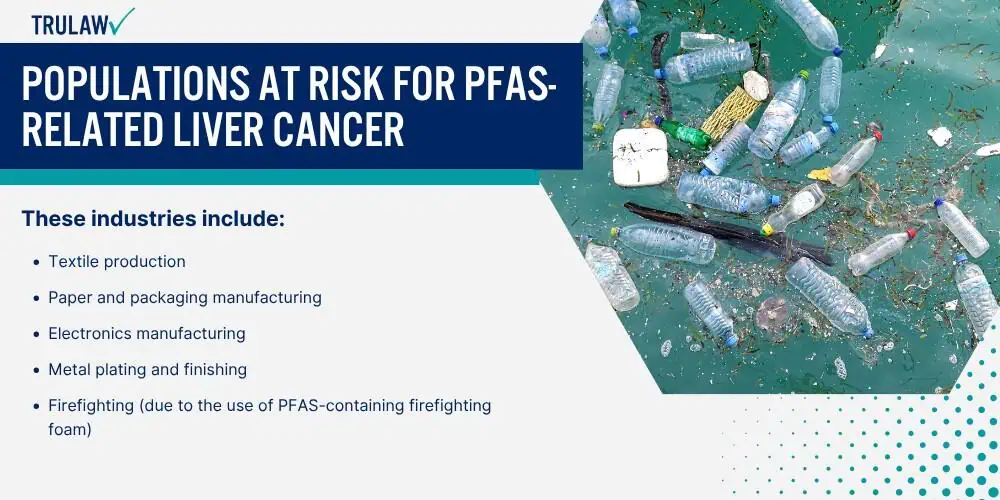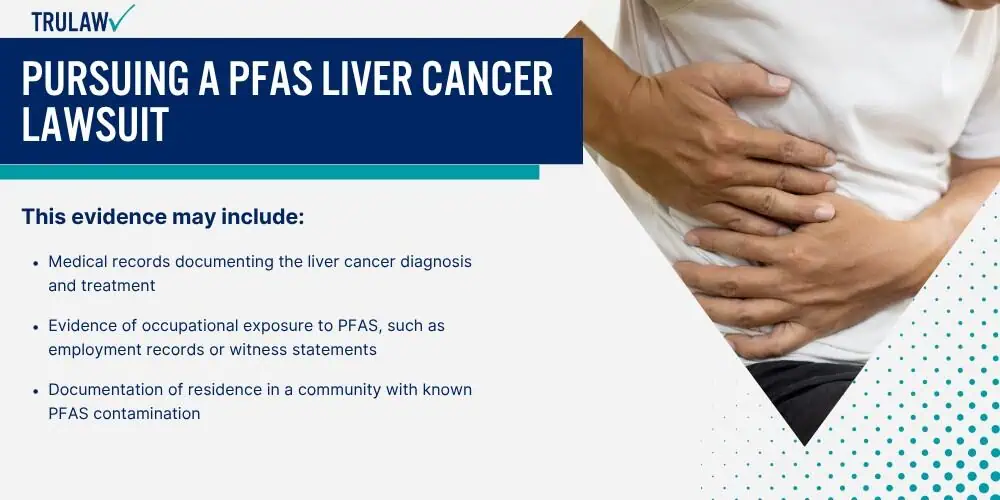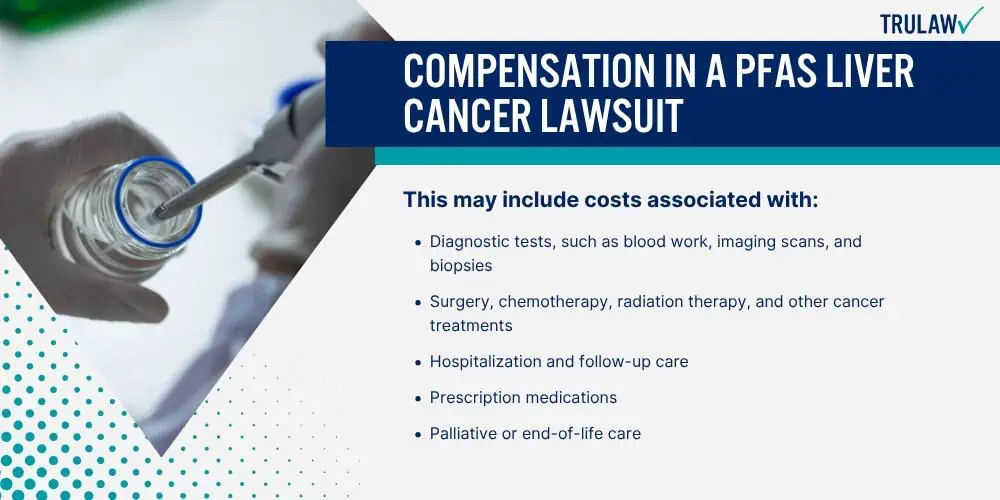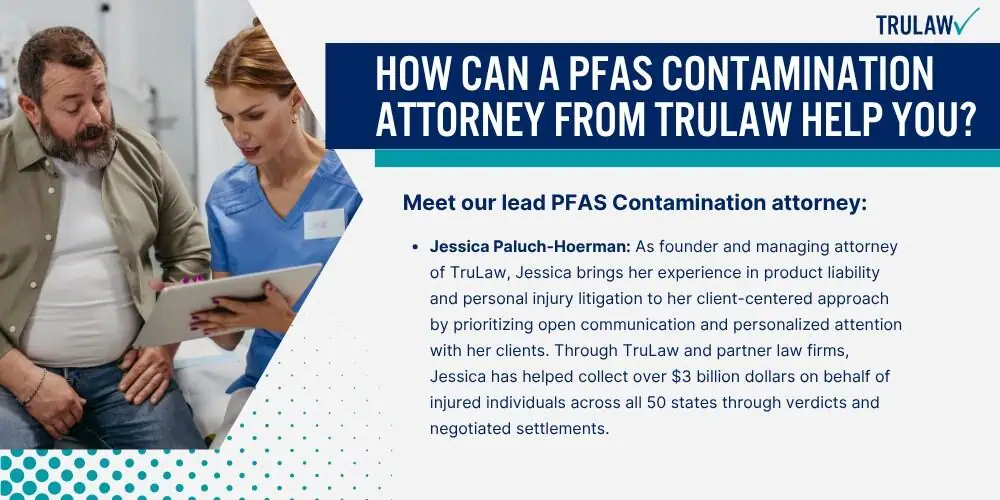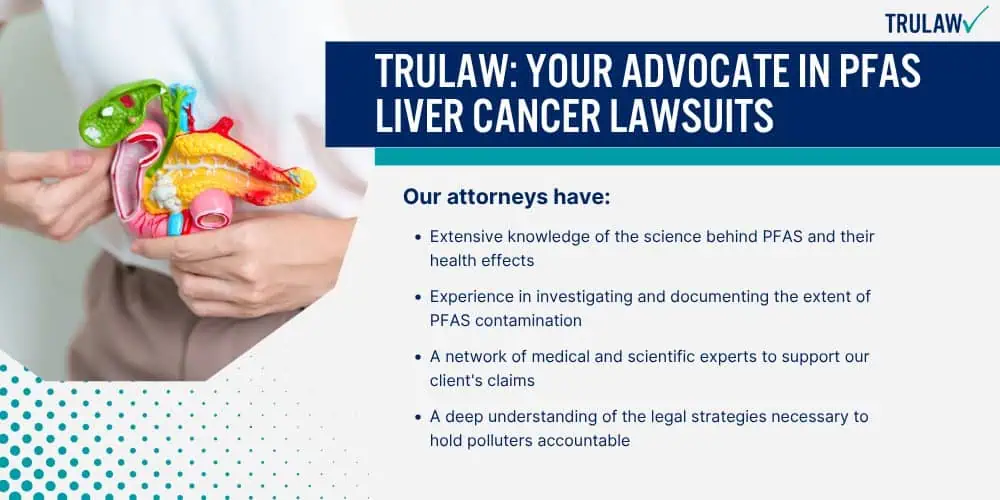Per- and poly-fluoroalkyl substances (PFAS) have been under increasing scrutiny in recent years due to their potential to cause severe health problems, including liver cancer.
While the evidence linking PFAS to liver cancer is still developing, there are growing concerns based on animal studies and limited human data.
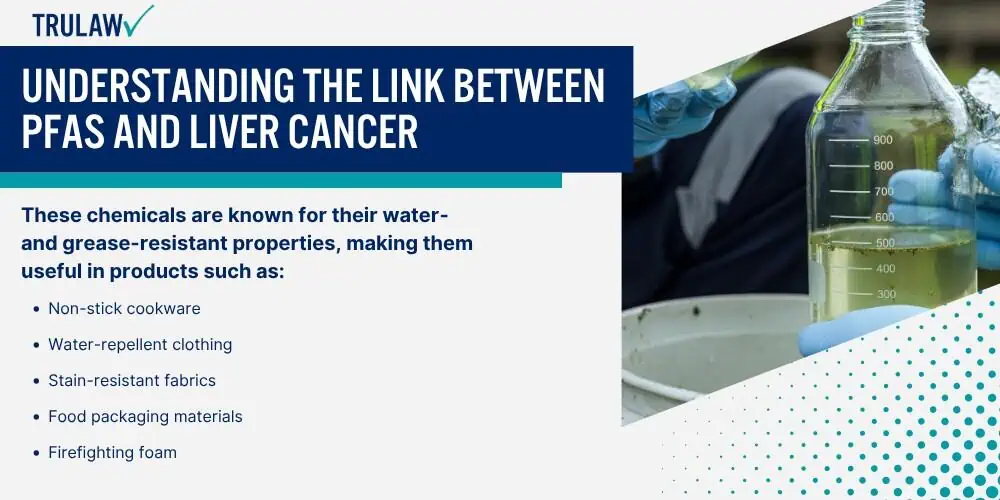
This article will explore the current understanding of the relationship between PFAS exposure and liver cancer, as well as the legal options available for those affected.
What are PFAS, and How do They Impact Liver Health?
PFAS are a group of man-made chemicals used in various industrial and consumer products since the 1940s.
These chemicals are known for their water- and grease-resistant properties, making them useful in products such as:
- Non-stick cookware
- Water-repellent clothing
- Stain-resistant fabrics
- Food packaging materials
- Firefighting foam
However, PFAS are also known as “forever chemicals” because they do not break down easily in the environment or the human body.
PFAS exposure can occur through drinking contaminated water, eating food packaged in PFAS-containing materials, or using products made with PFAS.
Once ingested, these chemicals can accumulate in the body over time, particularly in the liver, where they can cause damage and alter liver function.
Studies have shown that PFAS can induce oxidative stress, alter lipid metabolism, and promote inflammation in the liver, all of which are factors that can contribute to the development of liver cancer.
